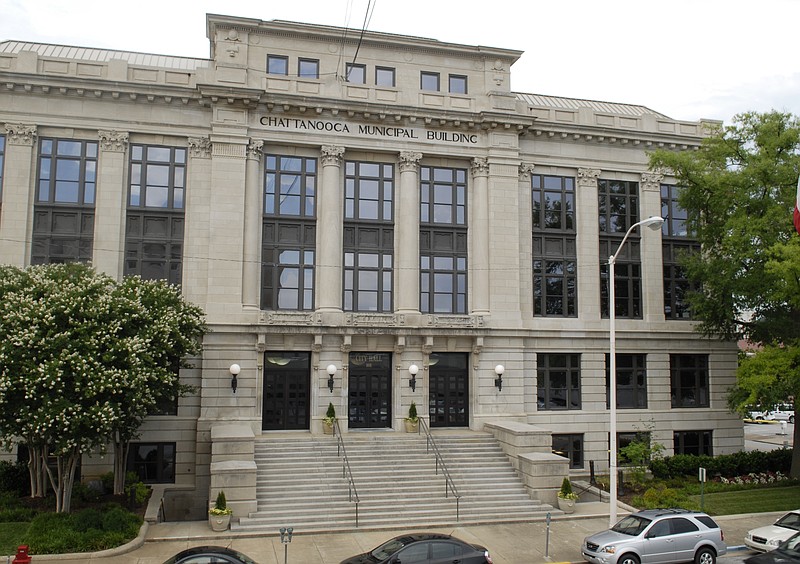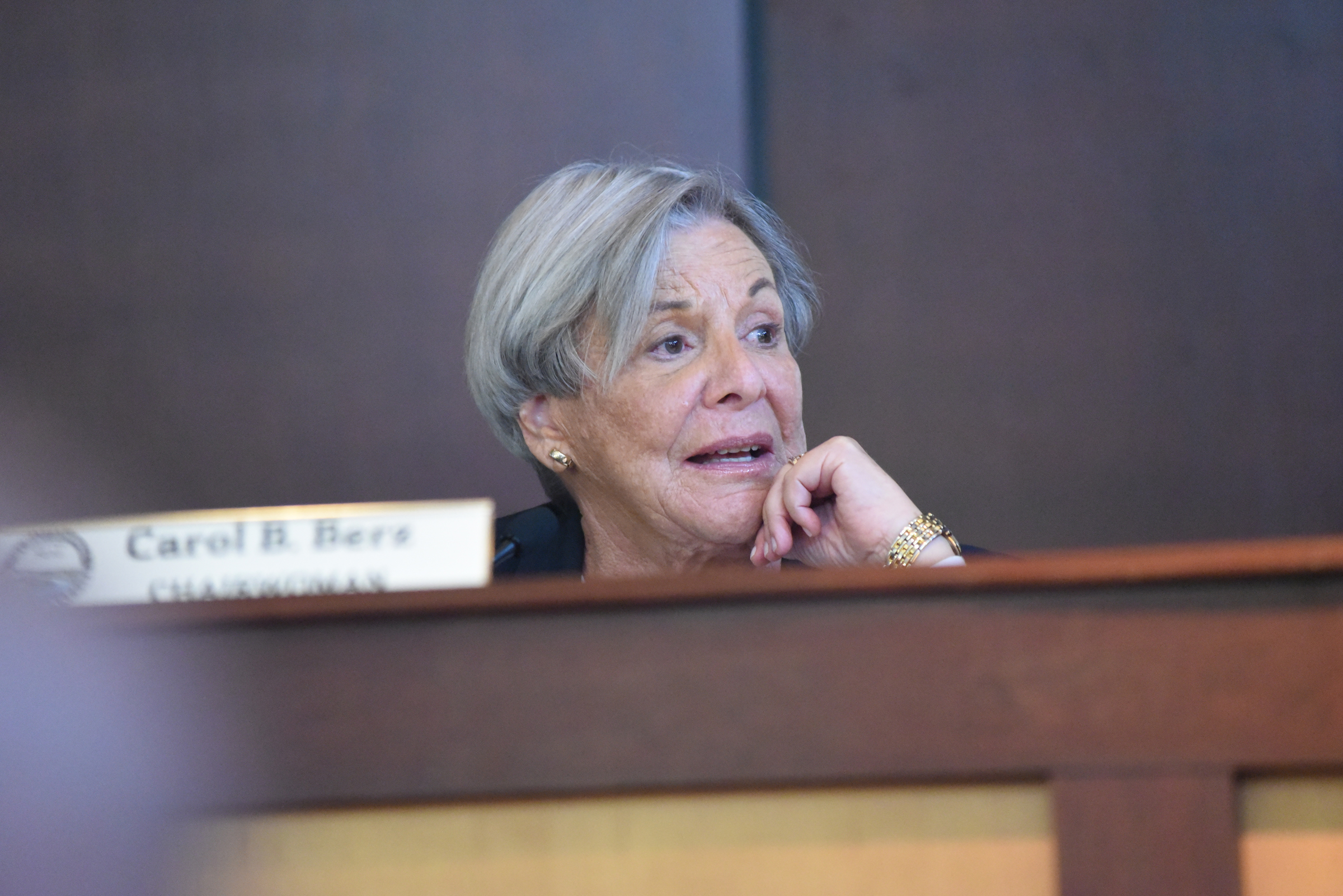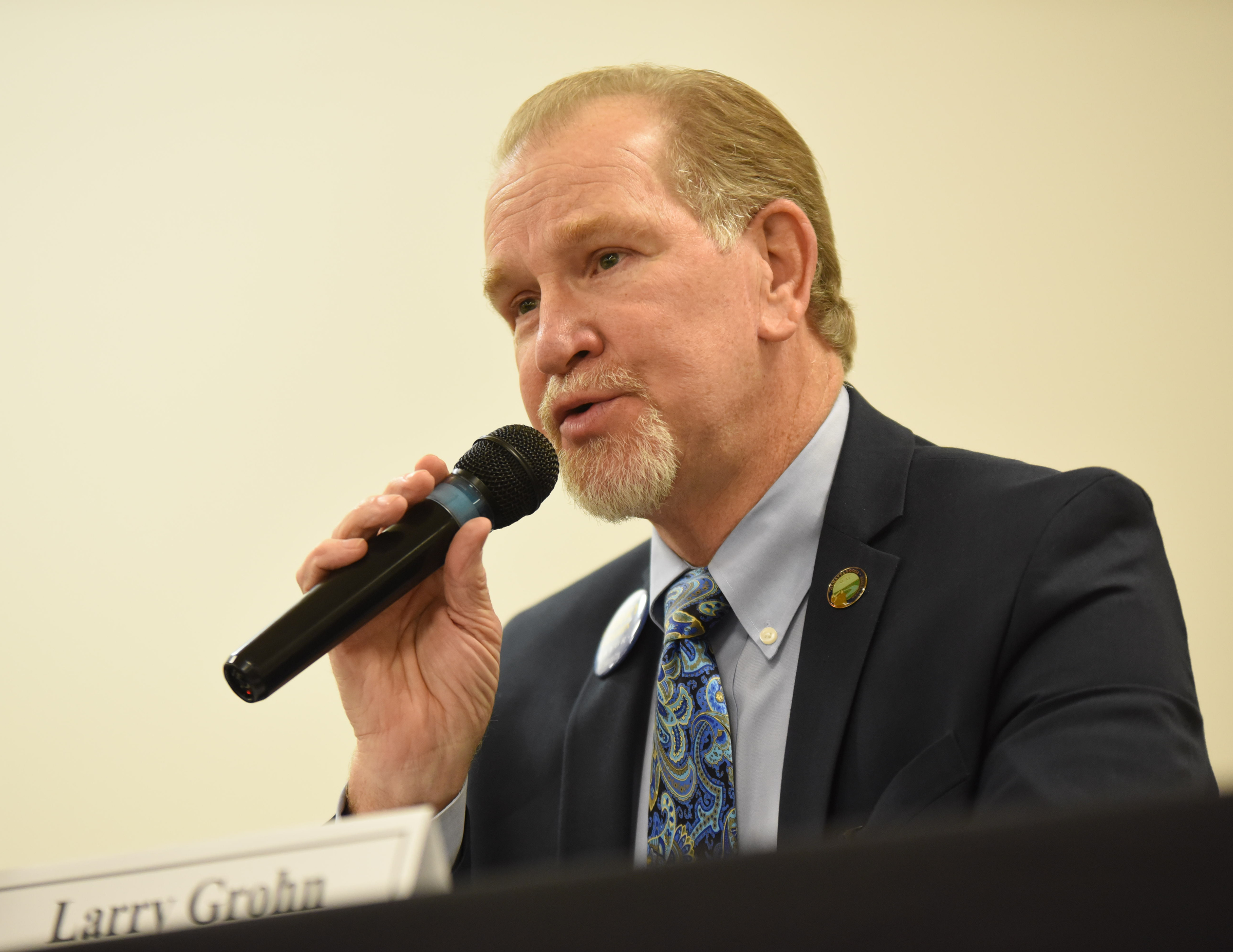
The Chattanooga City Council wants to know if a hike is in store for its water quality fee, previously known as the stormwater fee.
Chattanoogans pay the fee, set at $115.20 per 3,200 square feet of impervious area, as part of their property tax bills. Impervious areas do not readily absorb stormwater and include things such as rooftops, buildings, parking lots, sidewalks and driveways.
On Tuesday, the council questioned if a proposed $364,694 water quality program rate study meant Chattanooga Public Works Department would come back and recommend higher fees at some point. The council voted 8-1 to let the department launch the study, with Councilman Larry Grohn voting against the measure.
"We are trying to identify, basically, the costs of service that we are providing and seeing if it matches up with the fees," Public Works Deputy Administrator Donald Stone said. "That's not necessarily saying there will be a hike in the fees. We are just identifying where we are at this point."
City Engineer Bill Payne told the council the city last performed such a study 10 years ago.
It is intended to assess the level of water quality programming provided by the city and offer options concerning what is required minimal federal environment regulations and what it would take - and cost - to expand services, Payne said. For instance, he cited requests for assistance with neighborhood ponds, which now are the responsibility of homeowners.
"We're spending a lot of money to get this report, and I am wondering if the money is not better spent helping to provide or underwrite services that you feel we may be in a shortfall on now," Councilwoman Carol Berz said. "I, for one, would want a really detailed reason why we should raise rates at all, which is usually what happens when people do studies."
Stone and Payne assured the council they would receive the report.
The council also voted 9-0 to approve an additional $204,500 to boost repair efforts at the Summitt Landfill. The project launched in 2014 with a $350,000 agreement, amended to $374,000 in September.
The goal of the project is to enable the landfill to properly burn off its methane emissions without the assistance of natural gas, Stone said. Until that happens, the landfill has to purchase natural gas to get the combustion process to meet temperature thresholds set out in federal regulations.
Although Grohn voted in favor of the increase, he voiced displeasure.
"I can understand the need for this, but it's disconcerting we've had this amount of increase on a project," Grohn said.
In other business, the council authorized the Economic and Community Development Department to seek a $2.9 million federal housing grant to help low- and middle-income families remove lead-based paint and other hazards from their homes. If awarded the full amount, the grant will include $250,000 of local Community Development Block Grant money.
Contact staff writer Paul Leach at 423-757-6481 or pleach@times freepress.com. Follow him on Twitter @pleach_tfp.


